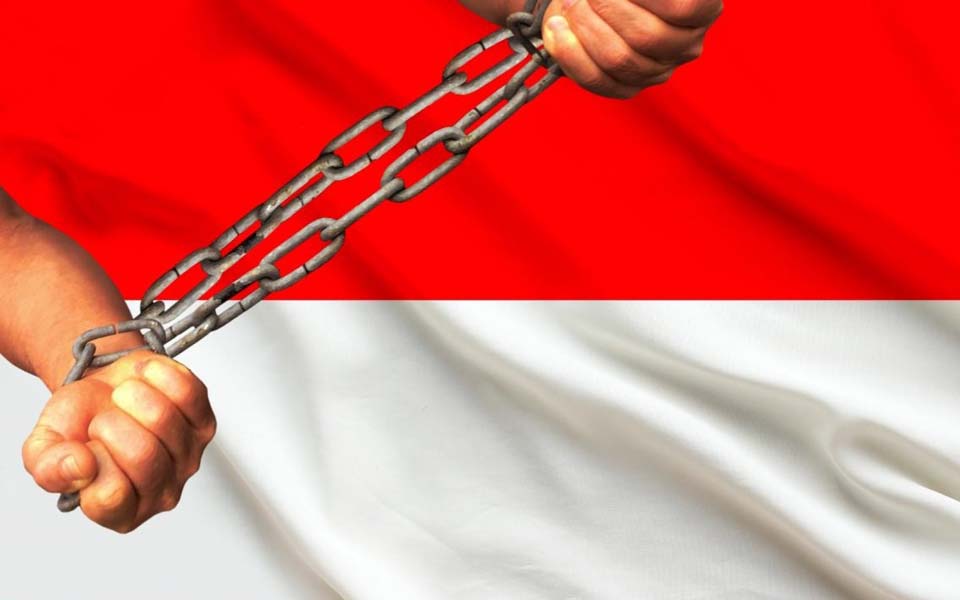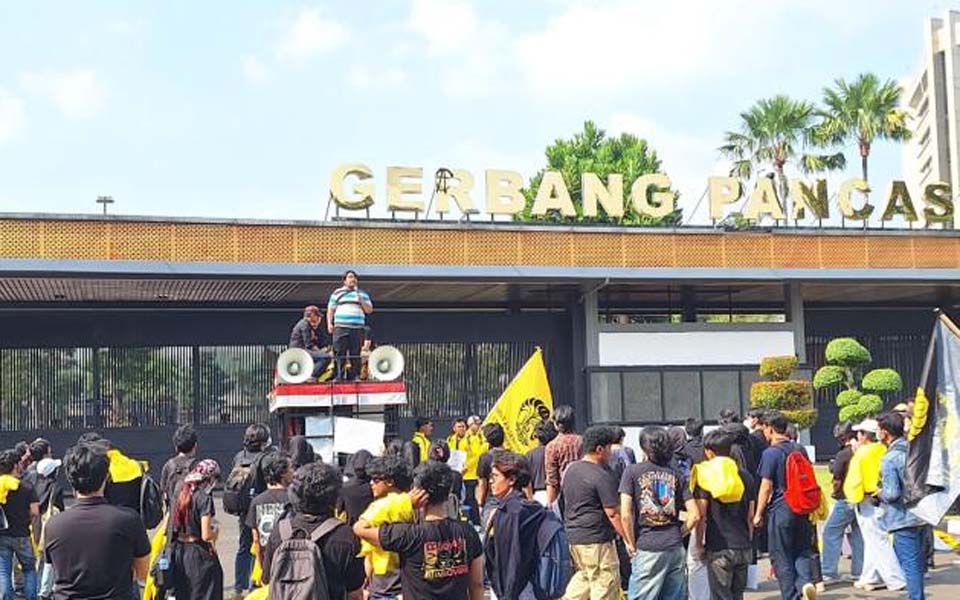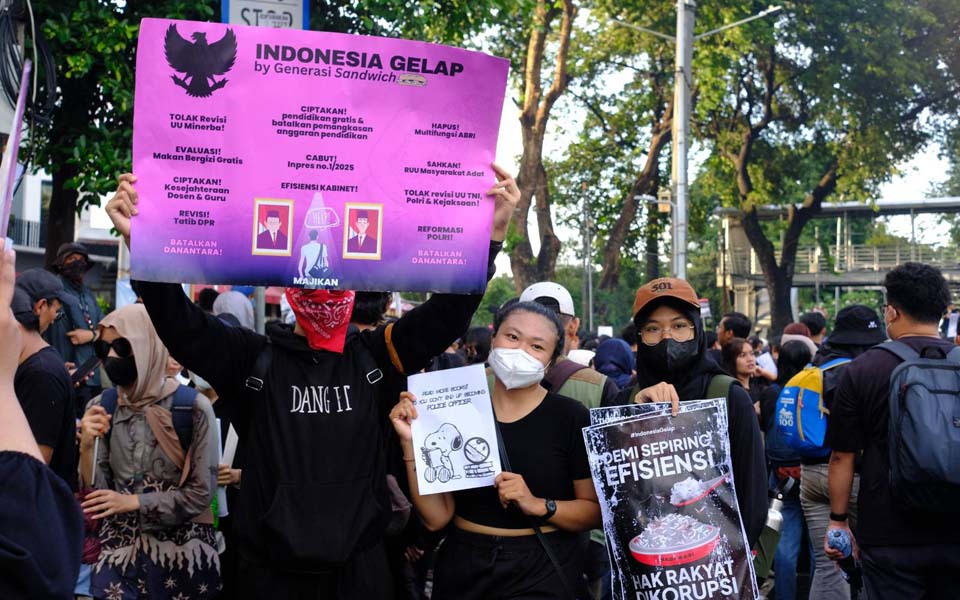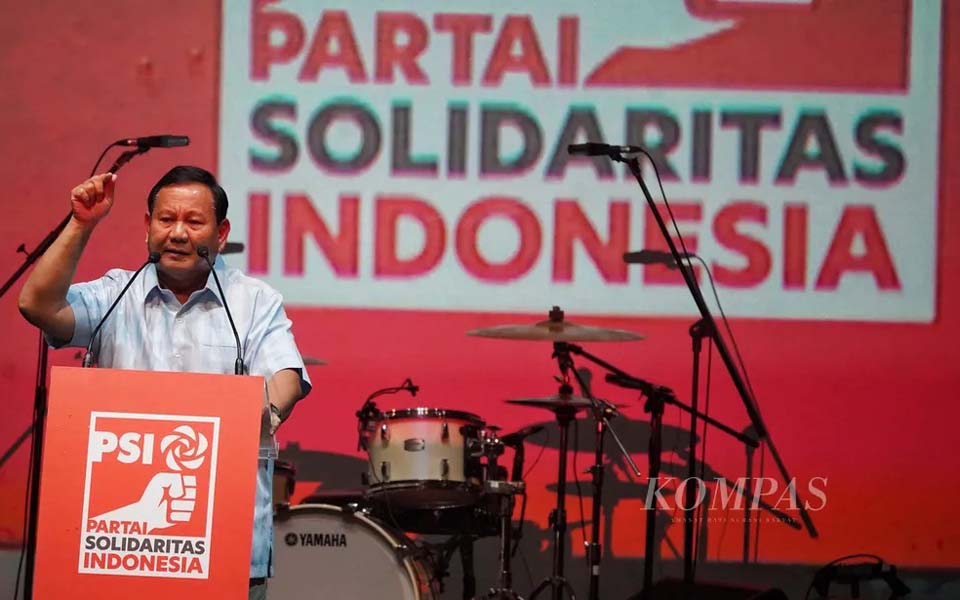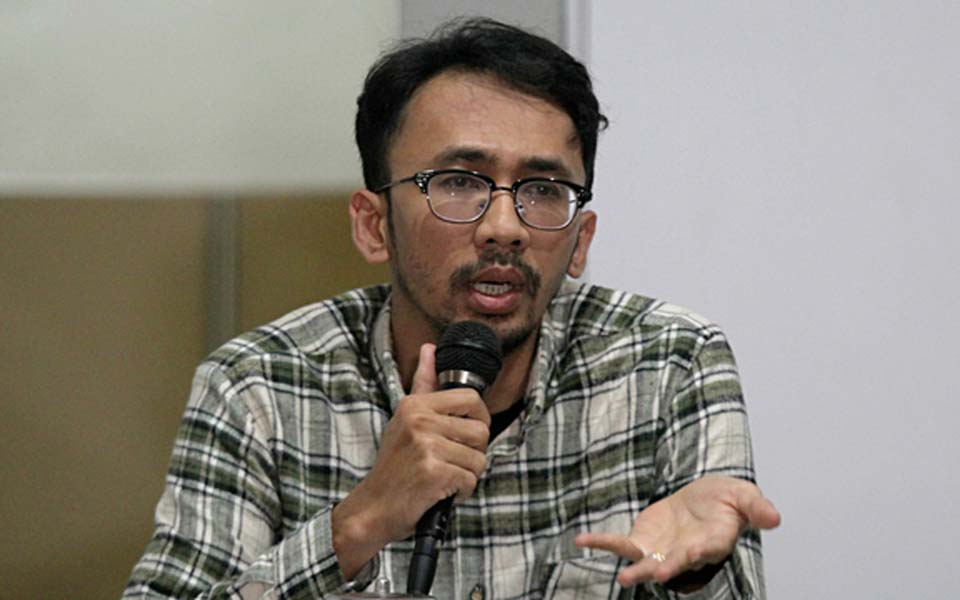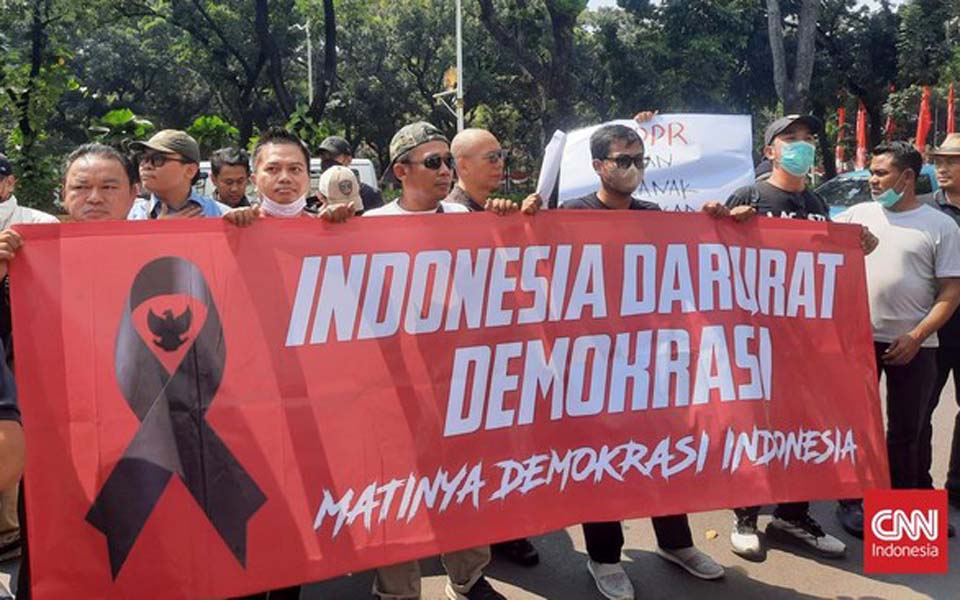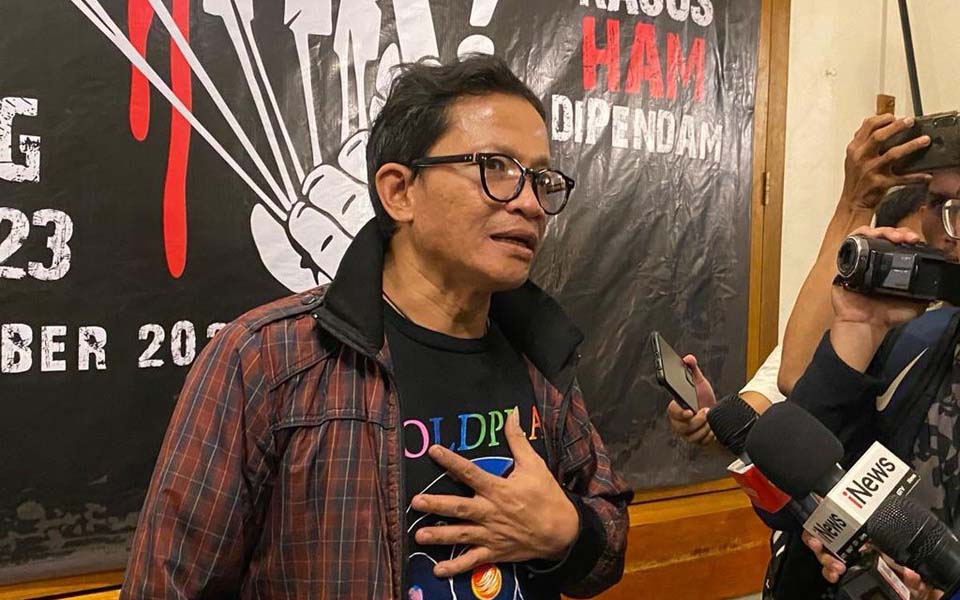Denty Piawai Nastitie, Jakarta – Criticism from civil society groups has accompanied agreement by the House of Representatives (DPR) to ratify revisions to the Information and Electronic Transaction (ITE) Law.
Aside from the deliberations on the law not being transparent, the revisions do not fully address the potential for criminalisation, particularly for victims of sexual and online gender based violence.
Agreement on the enactment of the Draft Law on the Second Revision to Law Number 11/2008 on Information and Electronic Transactions was reached during a DPR plenary meeting in Jakarta on Tuesday December 5.
Before the decision was taken, DPR Commission I Deputy Chairperson Abdul Kharis Almasyhari from the Islamic based Justice and Prosperity Party (PKS) faction read out a report on the deliberation process on the draft ITE Law.
Almasyhari said that since it was formed on April 23, they had discussed a total of 38 Problem Inventory Lists (DIM) on the revisions. This consisted of seven permanent proposals, seven proposed editorial changes and 24 proposals for substantial changes. Aside from that, there were 16 new DIMs proposed by political party factions.
He explained that there were a number of substantive changes in the second revision to the ITE Law including Article 27 Paragraph (1) on morality, Paragraph (3) on insults or defamation and Paragraph (4) on extortion or threats which refers to the Criminal Code (KUHP).
There was also Article 28 Paragraph (1) on the spread of false and misleading news which results in consumer losses in electronic transactions and Article 28 Paragraph (2) on the spread of false and misleading news as well as actions that give rise to feelings of hatred or hostility based on ethnic, religious, racial and inter-group issues (SARA).
In the revision process, the DPR also invited telecommunications law experts, information and communication technology practitioners and professional organisations that are related to the law.
"Overall, the discussions on the bill were held 14 times to discuss all the substantial and new proposals for articles as well as general explanations", he said.
Meanwhile, to sift through and formulate articles in accordance with Indonesian language principles and legislative formation techniques, as well as to synchronise the articles, a drafting and synchronisation team was employed on November 14 and 16.
Communication and Information Minister Budi Arie Setiadi said that the government is responsible for guaranteeing independence of thought and freedom of opinion that can be conveyed, one of the ways being through communication. The government is also tasked with providing personal protection as well as respect for dignity, security, morality and public order.
"In order to guarantee these rights, the government needs to provide necessary restrictions with the sole aim of guaranteeing fair recognition and rights in accordance with moral, religious, security and public order considerations in a democratic society", he said.
A number of problems
Law Number 11/2008 was initially enacted in 2008 and the first revision was made through Law Number 19/2019.
Setiadi believes that during the eight years of the application of the ITE Law, there were community and developments needs both nationally and globally. Aside from this there were problems such as enforcing laws that curb press freedom and threaten freedom of opinion.
"The current ITE Law cannot yet provide optimal protection for Indonesian internet users. This is the government's role in building a digital ecosystem that is fair, accountable, safe and innovative", he said.
With the second revision to the ITE Law, Setiadi hopes to improve recognition and respect for users' rights in optimising the use and utilisation of information technology.
Responding to the ratification, Southeast Asia Freedom of Expression Network (Safenet) freedom of expression division head Nenden Sekar Arum still questioned the process of revising the two ITE Laws which were carried out behind closed doors.
“The main concern is more about the closed (revision) process. Moreover, until it was ratified, the contents of the draft had not been revealed. How could the public assess whether there were improvement or vice versa in this second revision" he said.
In a press release, the Civil Society Coalition Against Sexual Violence (Kompaks) also expressed concerns about the closed revision process. Aside from this, they said that there are still many articles that do not show support for victims of sexual violence and online gender-based violence.
For example, Article 27 Paragraph (1), which contains elements of morality, is not clearly defined so it is often used to "regulate women's bodies" and interpret women's bodies as a moral issue.
Ellen Kusuma, one of three Kompaks coordinators, said that a number of cases show that this article is often interpreted broadly and can lead to criminalisation of victims of online gender-based violence, especially in the context of sexual expression or providing support to victims.
"In the context of sexual violence or online gender-based violence (KBGO), this creates significant vulnerabilities, such as the criminalisation of victims based on different interpretations of moral values", she said.
On the other hand, Article 27 Paragraph (3) is commonly used to prosecute individuals who criticise or voice their opinions online.
"In the context of sexual violence cases as well as KBGO, this article can hamper freedom of speech and result in intimidation of victims because it's often used to threaten and silence victims who speak out on social media", said Kusuma.
[Translated by James Balowski. The original title of the article was "Revisi UU ITE Disetujui Disahkan, Celah Kriminalisasi Masih Terbuka".]






